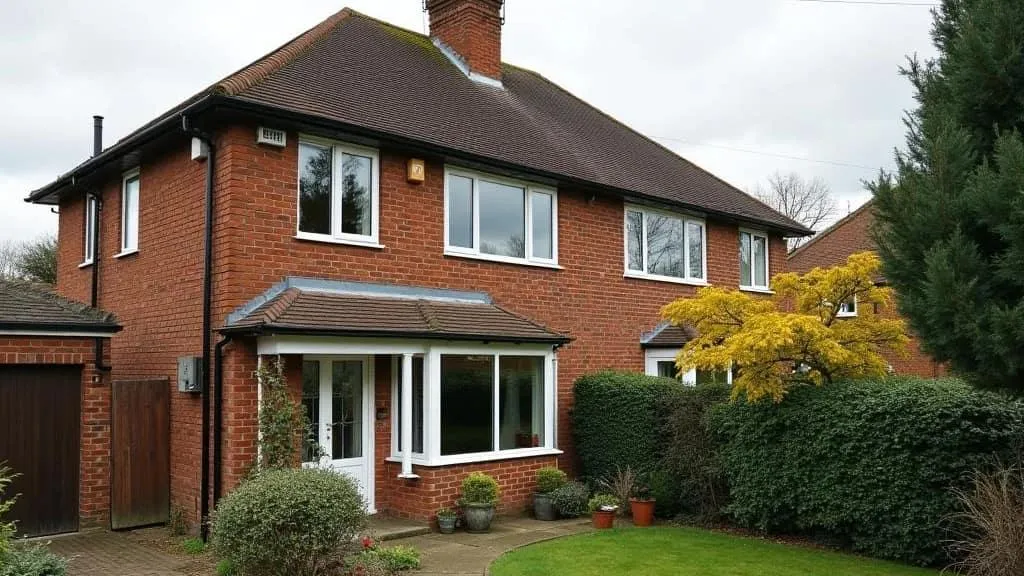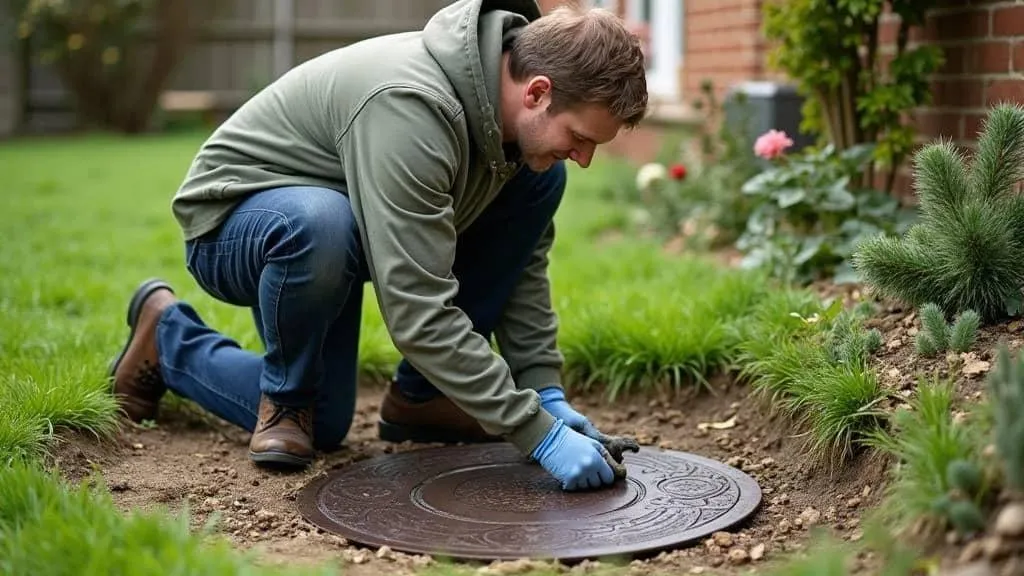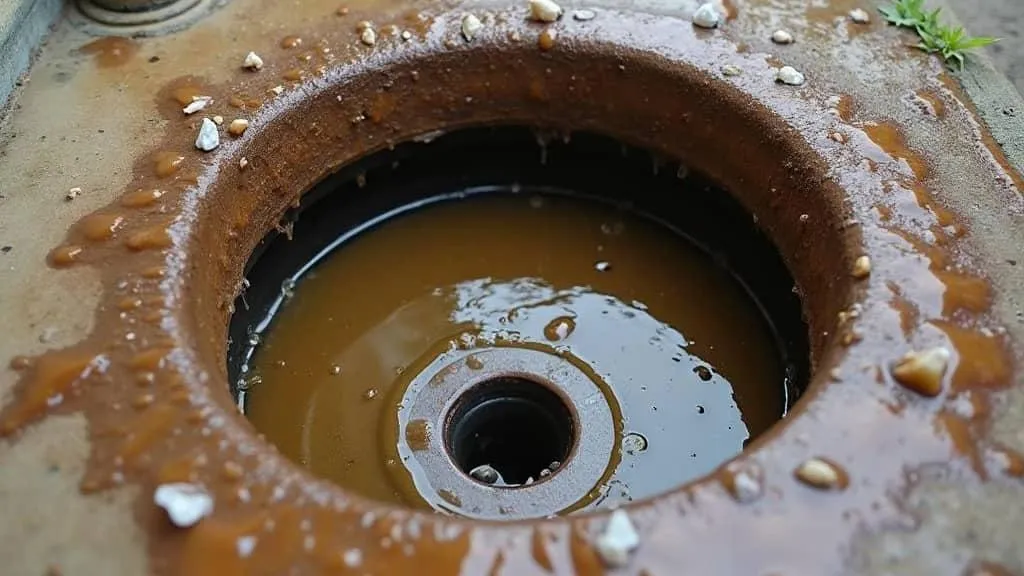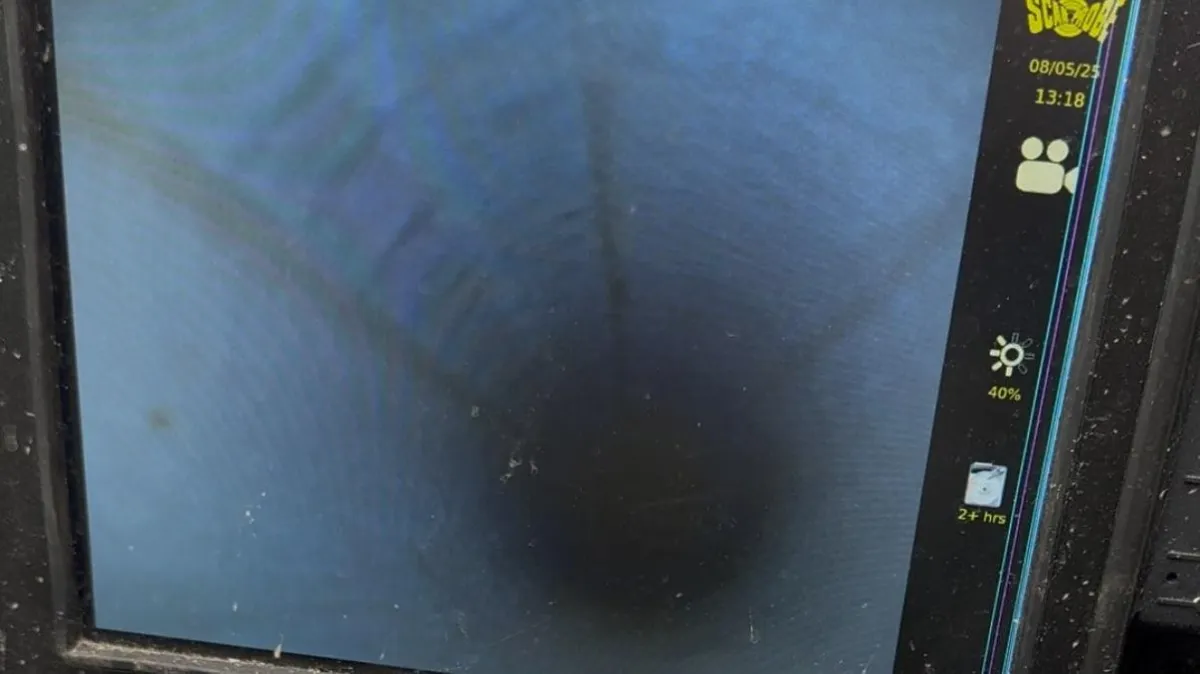
Are My Drains Joined to the Next-Door Neighbour? Bournemouth Drain Guide
About Shared Drainage in Bournemouth Houses
Is water coming back up? Are strange sounds coming from the sinks? These problems in Bournemouth homes might be because of the pipes connecting nearby houses.
Homeowners in Talbot Woods, Queens Park, and Southbourne should know if they share a link to Neighbours' waste channels. This can help resolve issues more quickly when they arise.
This guide shows how to check for shared outlets, explains who must fix them, and tells you who to call when problems occur.
Are Shared Drains Common in Bournemouth?
Yes, sharing is common in many places around Bournemouth. Shared drainage systems are often found in semi-detached and terraced houses. These homes usually have outlets that join before going to the main sewer.
Quick ways to check for shared drains:
• Look at the type of house - terraced and semi-detached homes often have mutual waste outlets
• Watch if neighbours nearby have similar problems at the same time
• Call Southern Water - they have maps that show pipeline networks.
What Are Shared Drains?
Shared drains are pipes that carry wastewater from more than one house. These pipes connect multiple homes before joining the main sewer system. In Bournemouth, where many houses are built close together, shared drains help save space and money.
The distinction between shared and private drains matters because it determines who is responsible when something goes wrong. Private drains serve only one property, and it is the owner's responsibility to maintain them. In contrast, Shared drains serve multiple properties; since a nationwide transfer in 2011, the local water and sewerage company now maintains these pipes. The company became responsible for about 220 kilometres of drainage pipes in the Bournemouth area and over 30,000 km of previously private sewers across England and Wales.
For homeowners in Bournemouth, understanding your drain type is more than just a technical detail. It also affects house insurance, property value, and planning for home improvements like extensions or conservatories.
Learning About Shared Drainage Systems
Most people do not think about drains until there is a problem. In shared drainage homes, what happens in a neighbours' pipes can cause problems in other homes too.
How Shared Drains Work
Water from sinks, baths, toilets and washing machines first goes through private home drains. Then, instead of going right to the main sewer, it joins a pipe that takes water from other houses. This shared pipe then connects to lateral drains outside the property, which lead to public sewers.
In Bournemouth, these shared systems can be complex, especially in older areas where drainage systems have been changed over many years.
Why Bournemouth Houses Often Have Connected Drains
Most houses in Bournemouth, especially older ones or those built as part of a group, were made with shared drainage to reduce costs. Bournemouth has many houses close together, with lots of semi-detached and row homes, which is why shared drainage is so common in this area and nearby towns like Poole and Christchurch.
The town's hills also matter as they help water flow downhill through pipes, but this needs good planning. Shared systems use these slopes well and do not need as many pumps.
Houses built before 1930 almost always have shared drainage, so Bournemouth homes from this era will likely have a shared system.

How to Check if Drains Are Connected to Neighbours
Bournemouth homeowners can use several methods to see if their drains join with their neighbour next door.
Looking at Property Plans
Start by checking the property's drainage layout. Southern Water can provide sewer maps for Bournemouth. These papers will show if a drainage system connects with nearby houses.
When checking outside, look for drain covers (metal or plastic covers on the ground) – especially near property edges. If a drain cover has pipes going to or from a surrounding property, this shows shared drainage.
House deeds might also have information about drainage plans, and speaking with neighbours, especially those who have lived there longer, can help.
Professional Camera Drain Checks
One of the best ways to find shared drainage is by getting a professional camera drain check. Special cameras can go through drainage pipes to map out where everything connects. This does not need any digging, and gives clear proof of whether the drains join with the next door
Camera checks work well for older Bournemouth properties, where drain layouts can be confusing. The cameras record the whole system. Trained workers can see connections to nearby properties and find any damage.
The cost of a camera drain check depends on how big the drainage system is, but it is usually between £85 and £250 for a standard Bournemouth house.
Watching Drain Problems
Pay attention when drain problems occur. If toilets back up or drains overflow at the same time as neighbours, this is a big sign of shared drainage. This happening-together reaction to blockages is one of the most evident signs that drains are connected.
Other signs include:
• Strange sounds from the drain when neighbours use washing machines
• Drain problems that come and go without matching water use
• Issues that get worse during heavy rain, affecting multiple houses
In row houses, look for drain covers between homes. These often show where house drains join a shared pipe. They are common in Queens Park and Southbourne.
Legal Rules for Shared Drains in Bournemouth
Knowing who must fix and pay for repairs is essential for Bournemouth homeowners with shared drains. These rules have changed in recent years.
The 2011 Pipe Rule Change
In October 2011, the government changed the rules about who takes care of shared drains. They moved this job from homeowners to water companies. This change means Southern Water now handles most shared drainage problems in Bournemouth.
Before this change, if a shared drain in a garden served neighbours, everyone would be responsible for fixing it. This caused many arguments. The new rules made things simpler.
Current Rules About Who Fixes What
Here is who takes care of different parts of the system:
Private drains: Any drains inside a property that only serve that house are still the homeowner's job to fix. These pipes that take water from the house to the main sewer.
Shared drains: Drains that collect water from multiple houses, even if located within one property, are now Southern Water's responsibility. According to the change in 2011, even if the shared pipe runs under one garden, it is no longer the homeowner's responsibility.
Lateral drains: These are pipes outside property lines that connect drainage to the main sewer. These are also the water company's responsibility.
This change has helped many Bournemouth homeowners by removing the stress and cost of maintaining shared syste

Common Drain Problems in Connected Systems
Shared drainage systems in Bournemouth can have special issues that differ from single-home systems.
Blockages Affecting Multiple Houses
When drains are shared, blockages can affect many homes at once. Common causes include cooking oils going down sinks, toilet paper, wet wipes, and tree roots growing into pipes.
The complicated part with shared systems is that the blockage might not be caused by anything one homeowner did. Neighbours' habits could create problems that affect others. For example, if someone pours cooking oil down their sink, it might harden further down in the shared pipe, causing backups into multiple homes.
In Bournemouth's tree-filled areas like Talbot Woods, autumn often brings blockages as fallen leaves wash into the drains. By contrast, homes close to Southbourne beach sometimes find sand accumulating in their pipes.
Finding Where Problems Start
When drain problems happen, it helps to know if the issue is in a private drain or the shared section. If your own drain is clear but the problem persists, or neighbours have similar issues, the blockage is probably in the shared part.
One way to check is to run water down the lowest drain (usually a ground floor toilet or sink) while listening at the drain covers. If water sounds like it flows freely, the blockage is likely further down, possibly in a shared section.
Disagreements with Neighbour About Who Should Fix Problems
Even with clear rules, neighbours and water companies can still have arguments about who should fix drainage problems. Keeping papers about the drainage system can help solve these problems quickly.
If Southern Water says a broken pipe is a private drain, but the homeowner thinks it's a shared system, proof may be needed. This is where camera check reports and property plans are beneficial.
What to Do When Shared Drains Get Blocked
If you think there might be a blockage in a shared drain, here are the steps to take:
Calling Southern Water
For shared drain blockages in Bournemouth, contact Southern Water at 0330 303 0368 or check their website to report the problem. They take care of shared drains and sewer systems in the area.
When calling, have this information ready: address, when the problem started, which drains have issues, and if neighbours have similar problems. If there were drainage problems before, mention this too.
Southern Water should respond to severe blockages within 24 hours, though times can vary depending of the severity on the problem and the number of affected houses.
Emergency Cases
For emergencies causing damage to homes, 24/7 emergency drain services are available from local Bournemouth drain specialists who can come quickly while waiting for the water company.
If sewage is backing up into a home, the water might damage floors or electrical items. Even if Southern Water should be fixing the blockage, it's good to call an emergency plumber. They can often provide quick help while waiting for a permanent fix.
Ways to Prevent Problems
To prevent blockages in shared systems, be careful about what goes down the drains. Don't put fats, oils, wet wipes, and other items that cause problems down drains - they can create blockages affecting multiple houses.
We recommend regular cleaning of your private drains, at least once a year, to the prevent build-up of scale, grease, and dirt before it becomes a problem. This is especially important for older Bournemouth houses.
For houses with trees near drainage pipes, root barriers or regular root cutting can prevent damage. Bournemouth's sandy soil can make this problem worse, as roots spread easily.

New Drain Repair Methods
Modern drain repair methods can fix many problems without digging up gardens or driveways. These "no-dig" methods include:
Drain lining: A special tube covered with resin is placed inside damaged pipes. It hardens to make a new pipe inside the old one. This can add 50+ years to the life of old pipes and is ideal for shared drains that run under gardens, patios or driveways.
High-pressure water jetting: Powerful water sprays clean out blockages and remove scale inside pipes. This works well for regular maintenance of shared systems.
CCTV with locating equipment: Modern drain cameras now come with special tools that can pinpoint precisely where a problem is, even in complex shared systems. This helps workers fix only the problem area without disturbing the whole pipe network.
Patch repairs: Patch repairs are used to fix minor damaged sections without replacing the whole pipe. The approach is faster and causes less disruption, especially when drains run through multiple properties.
These no-dig methods are helpful in Bournemouth's older neighbourhoods where shared Victorian drainage systems often run beneath established gardens and patios. They allow repairs without damaging property or causing disputes between neighbours about access for traditional digging work.
Final Thoughts
Now everyone knows how to spot shared drains, who is responsible for fixing them, and what to do when problems occur. For Bournemouth homeowners in Talbot Woods, Queens Park and Southbourne, this can save trouble when drainage issues happen.
Remember:
• Most terraced and semi-detached houses have shared drainage
• Southern Water handles most shared drain issues
• Camera checks confirm drain connections
• Be careful what goes down the drains
• Keep records of previous repairs handy
If there might be drainage problems, do not wait. Bournemouth drain experts are ready to help with camera surveys and advice.
Schedule Your Appointment With Us Today
CONTACT DETAILS
CUSTOMER CARE
LEGAL
SITE LINKS

© Copyright 2025. 1st call drainage . All Rights Reserved.